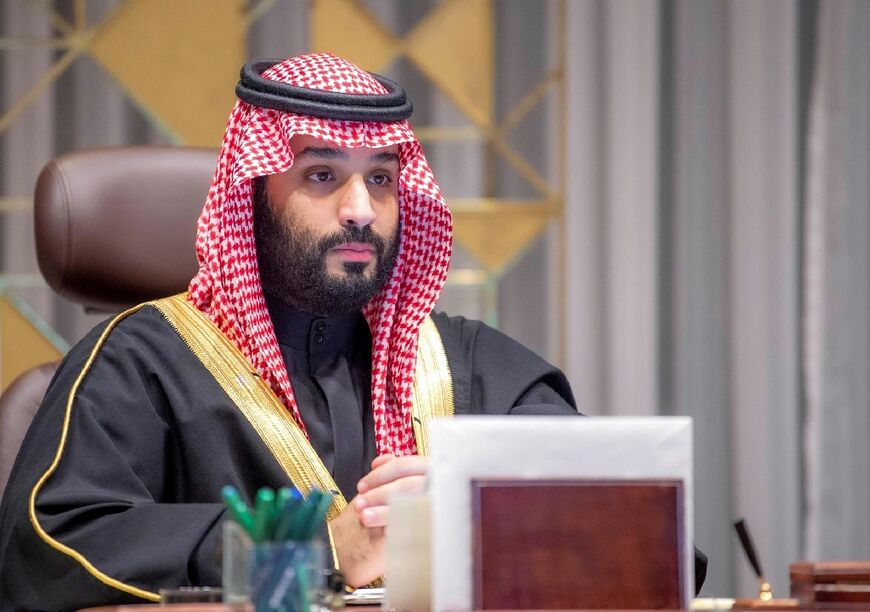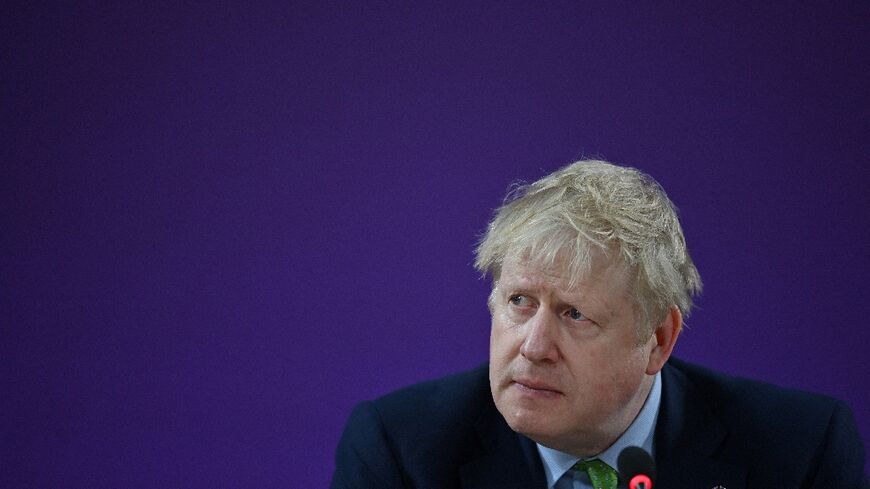Saudi Arabia and the United Arab Emirates have a crucial role to play in taming global oil markets after Russia's invasion of Ukraine, UK Prime Minister Boris Johnson said on Tuesday as he jetted to the Gulf for talks.
Johnson is due to meet crown princes Mohammed bin Zayed and Mohammed bin Salman in Abu Dhabi and Riyadh on Wednesday, as part of his drive to help wean the West off a dependency on Russian oil.
The visit to Saudi Arabia in particular is controversial, after outrage from human rights groups at the mass execution last Saturday of 81 people.
Bin Salman has also been accused of masterminding the murder of journalist and Riyadh critic Jamal Khashoggi at the Saudi consulate in Istanbul in 2018.
Johnson's spokesman insisted that he would raise human rights concerns and the executions, and he would ask bin Salman to condemn Russia's President Vladimir Putin over its assault on Ukraine.
Both Saudi Arabia and the UAE having so far avoided taking a position against Russia.
But Johnson said before leaving that the impact of Russian President Vladimir Putin's "brutal and unprovoked" assault will be felt far beyond Europe.
And that as Western sanctions begin to bite, a new international coalition was needed to offset their impact on consumers already feeling the pinch from high inflation and rises in the cost of living.
"The world must wean itself off Russian hydrocarbons and starve Putin's addiction to oil and gas," he said in a statement.
"Saudi Arabia and the United Arab Emirates are key international partners in that effort.
"We will work with them to ensure regional security, support the humanitarian relief effort and stabilise global energy markets for the longer term."
The UAE and Saudi Arabia are the UK's two largest economic partners in the region, with bilateral trade worth £12.2 billion ($15.9 billion, 14.5 billion euros) and £10.4 billion respectively in 2020, Downing Street said.
- Uphill task -
Johnson is hoping he can persuade bin Salman to boost his kingdom's oil production to help lower spiralling prices that are pushing up household energy bills.
Germany last week issued an "urgent appeal" to the Saudi-led OPEC oil producers group to increase production "to create relief on the market" because of supply fears.

Like the United States, the UK plans to phase out Russian oil imports by the year-end, as part of wide-ranging sanctions targeting Russian businesses and billionaires.
Russian imports account for 8.0 percent of total UK oil demand -- less than in mainland Europe, where there has been a reluctance to turn the taps off completely.
Last week, countries including Germany warned against an abrupt ban on Russian energy imports given the lack of immediate alternative supplies.
Russia is the world's largest producer of gas and second-largest oil producer behind OPEC kingpin Saudi Arabia.
Torbjorn Soltvedt, Middle East and North Africa analyst at Verisk Maplecroft, said efforts to bring down oil prices have so far amounted to little.
He said the odds were "stacked against Johnson as he seeks to secure a shift in Saudi and OPEC oil policy".
"Saudi Arabia has so far proved reluctant to deviate from the current OPEC+ framework and plan, which mandates incremental monthly production increases," he told AFP.
"The framework has been highly effective during the Covid-19 pandemic and there is strong reluctance to change course."
Soltvedt said the UAE "may be more willing to open the taps" as it wants to capitalise on its oil reserves more quickly.
But the UAE on March 10 reaffirmed its commitment to OPEC+ alliance agreements to stick to existing output targets through April.


